Luz de 'Cuatro Lunas'
By depicting 4 different stories, Director Sergio Tovar Velarde keeps the focus on the shared humanity and search for love (both self and romantic) of various gay Mexican men.


This article contains minor spoilers for Black Panther: Wakanda Forever
Black Panther: Wakanda Forever wastes no time in dealing with the tragic passing of Chadwick Boseman. The entire introduction of the film opens with in-universe scenes of the characters dealing with T’Challa’s (Chadwick Boseman) untimely death. Director Ryan Coogler grounds the character’s death in reality by having him pass away from an unknown illness that he kept secret, paralleling Boseman’s real-life passing. This is followed directly by a breaking of the fourth wall where Marvel acknowledges fans with a tribute to Boseman using their classic Marvel graphics introduction. Instead of comic images of Black Panther, we are shown heart-wrenching images of Boseman before transitioning to the Marvel logo. This is ingeniously done without a score, instead, a literal moment of silence accompanies and follows the images. This is a wise move that allows the film to transition to life in Wakanda without T’Challa.
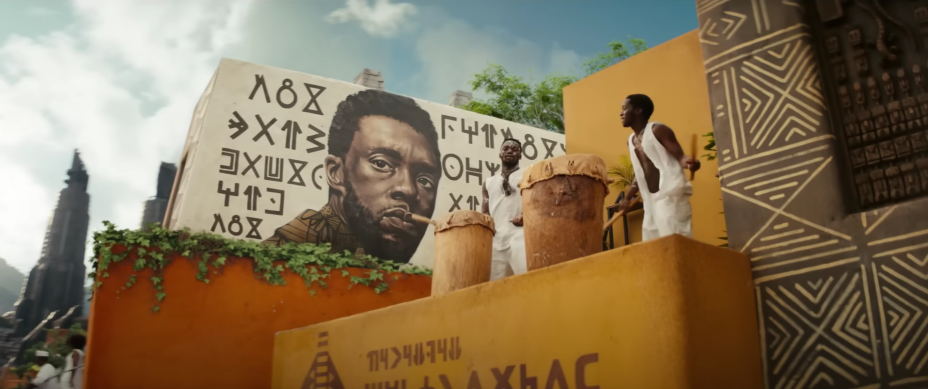
This is a major cinematic theme of this film: transition. There are many major characters who are on individual hero journeys as they transition into new people and/or stages of life. Some of these transitions are about death and dealing with life after losing the ones we love, while other characters are transitioning and changing into new characters. The entire movie itself acts as a transitional buffer for fans. It aims to please both the #recasttchalla fans and those who wanted Chadwick Boseman’s Black Panther to remain the only portrayal. The film opts for a refreshing compromise in an increasingly polarized fandom. Princess Shuri and Queen Ramonda constantly remind the viewer that T’Challa might be gone, but that the mantle of the Black Panther must live on. However, the film wisely circumvents replacing T’Challa immediately with another male actor and instead passes the mantle temporarily to an appropriate party (likely spoiled in the trailers for most). The sequel does not erase Boseman’s T’Challa, instead, he is felt in every cell of the film, and it feels organic. The film acts as a proper transitional time for mourning while warming viewers to the possibility of future Black Panthers. The wisdom lies in pivoting the conversation from a replacement in recast to a legacy to be passed on.
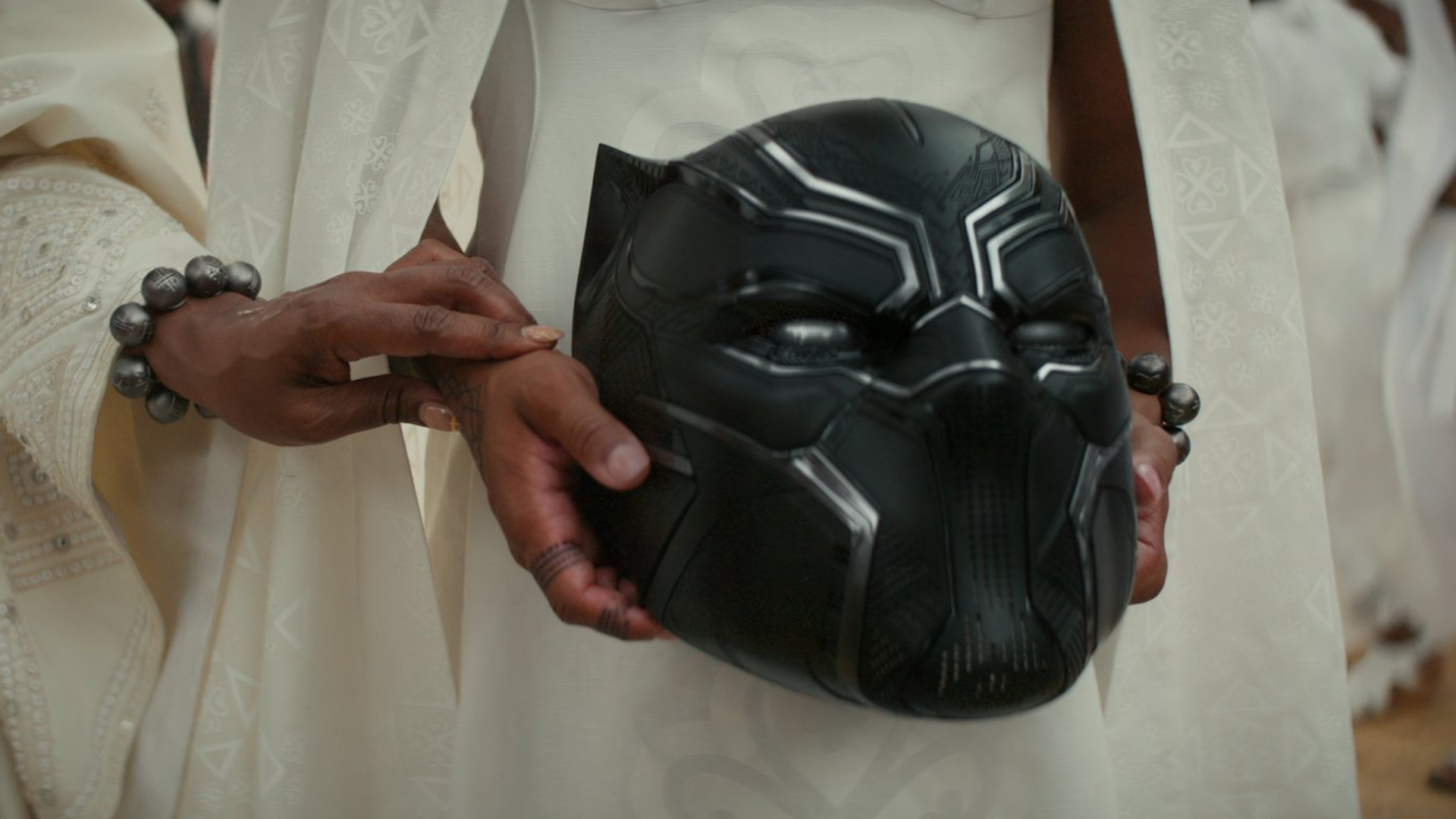
The film’s story has been criticized as crowded by a few, but I would suggest the film is more full than crowded, as a transitional sequel should be. The characters are dealing with the loss of their King, protector, brother, lover, and friend; international espionage and political pressure; and the threat of either invasion or global warfare. There are a lot of story threads to weave into a cohesive narrative. Director Coogler handles the film well, keeping the action believable and tailored to the individuals, while also leaving an ending that allows the series to move forward in a number of different directions.
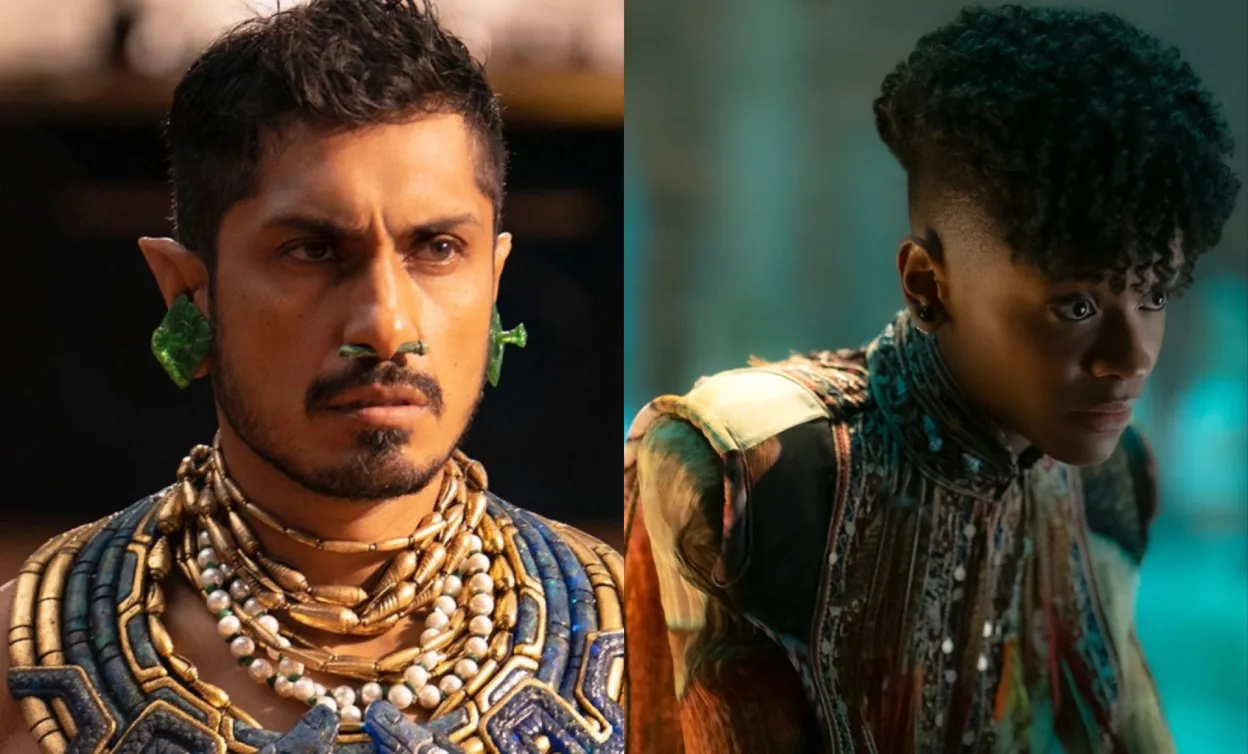
The storytelling is in conversation with the sociopolitical issues around the idea of rainbow coalitions between People of Color (POC). The Wakandans find themselves socio-politically isolated despite their diplomatic approach to the predators of the modern global stage. The Talokans represent a more militant approach to the global effects of colonization, wanting to wage war on the surface world. Representing the African Diaspora and Indigenous people of Mesoamerica, respectively, the film’s conversation draws inevitable parallels to the sometimes frictional relationship between People of Color. If the first film explored issues between African Americans and continental Africans, this film explores the similarities and differences between People of African descent and/or other People of Color*. That the initial conflict is born from the actions of deceptive colonizers is a nuanced take that only someone well-versed in these issues could make.
*The essay that would explain the intricacies of this conversation would be more than the available space here
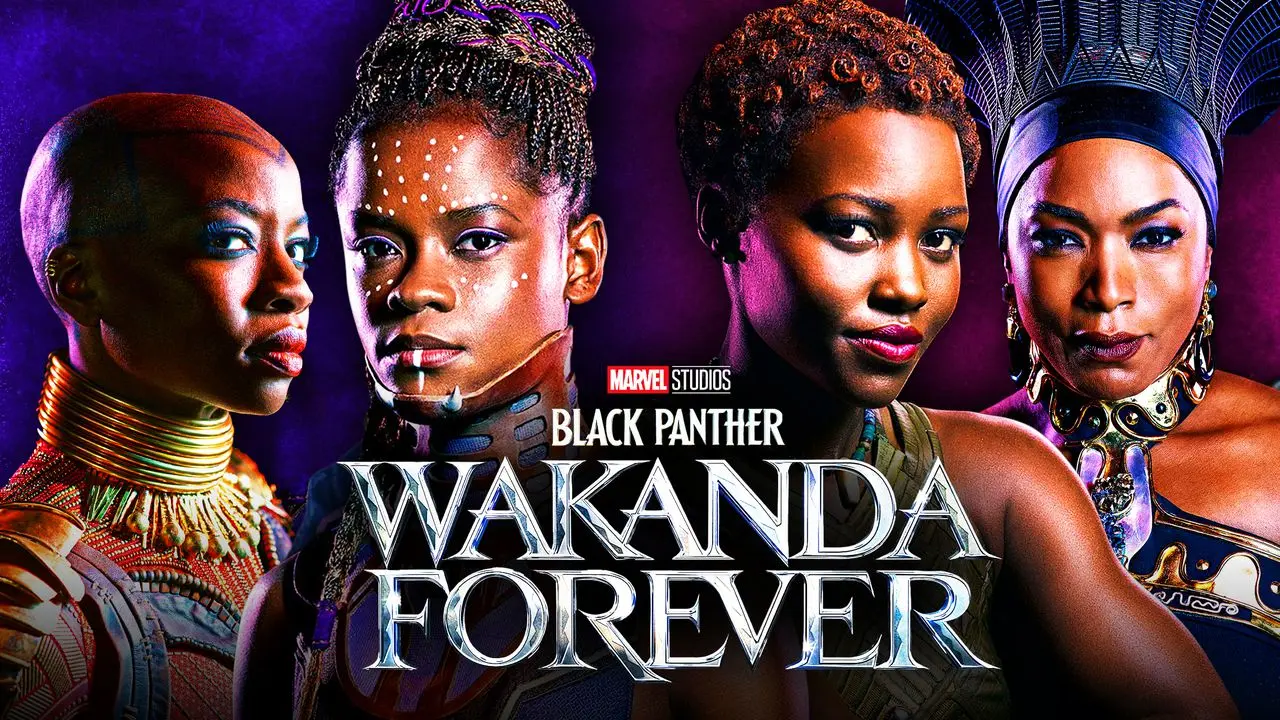
Coogler has crafted a story that allows the Black women starring in it to be varied in experience and expression. This diversity is refreshing, and proof of what happens when a storyteller listens to the people they want to portray. There are traditionally feminine women, masculine presenting women, nerdy Black women, queer Black women, and even women with and without love interests. Coogler stated that he wanted to show the diversity in Black women and the Black experience, seeing Riri Williams (Dominque Thorne) and Shuri (Letitia Wright) as foils that parallel the differences between T’Challa and Killmonger (Michael B. Jordan) from the first film. This is all done without unnatural nerfing or antagonism against male characters. Queen Ramonda and Princess Shuri prove themselves leaders with their own distinct styles. M’Baku (Winston Duke) also shines as someone who has grown into a trusted ally and source of wisdom in times of crisis. This gender flip, where traditionally we’d have mostly men and maybe one woman, continues the conversation reignited by The Woman King: Black women-led films are just as viable as any other film.
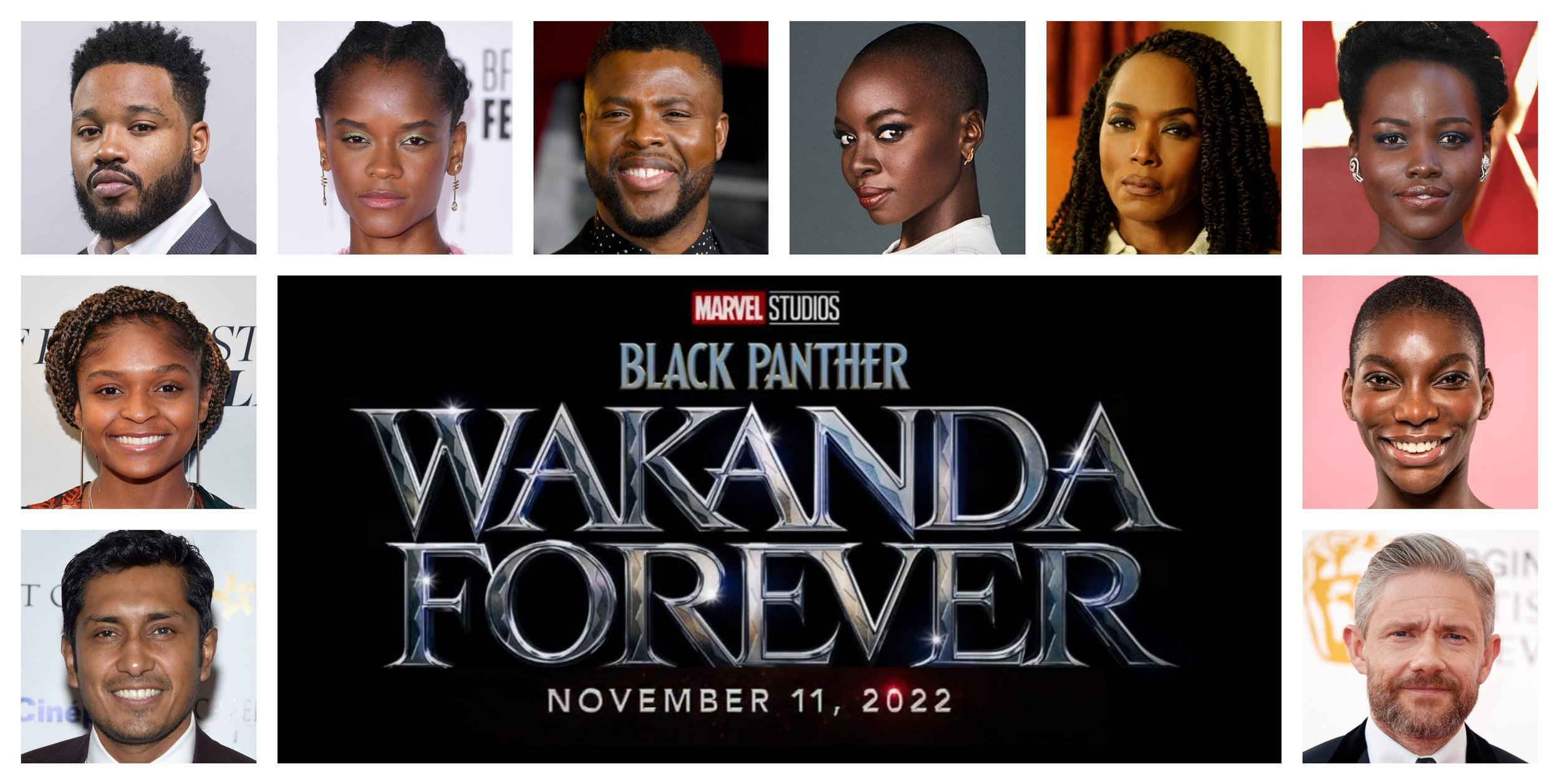
The loss of Boseman is omnipresent in Black Panther: Wakanda Forever. Princess Shuri, Queen Ramonda (Angela Bassett), Nakia (Lupita Nyong’o), Oyoke (Danai Gurira), and M’Baku (Winston Duke) are all exceptional, bringing life to the film, but Boseman’s undeniable charisma is still missed. The additions of Riri Williams/Ironheart (Dominque Thorne), Namor (Tenoch Huerta), Aneka (Michaela Cole), Ayo (Florence Kasumba), and Everett Ross (Martin Freeman) bring much-needed humor and lightheartedness to balance the heavy atmosphere. Coogler and the cast ultimately succeed at transitioning the cinematic focus to the ensemble, helping mitigate Boseman’s individual absence, and avoiding the mistake of asking one individual to do the impossible task of carrying the movie in his stead.
This is a must-see film on several levels beyond discussion in the limited space here.
Related lists created by the same author
By depicting 4 different stories, Director Sergio Tovar Velarde keeps the focus on the shared humanity and search for love (both self and romantic) of various gay Mexican men.
Related diversity category
As Sexual Assault Awareness Month comes to an end, I’d like to urge viewers and filmmakers to take a long and hard look at how rape is portrayed on screen.
Related Movie / TV / List / Topic
With 'The Last Movie Stars,' filmmaker and fanboy Ethan Hawke cracks the facade of Hollywood's last golden couple, but reveals a couple who were committed to each other before all else.